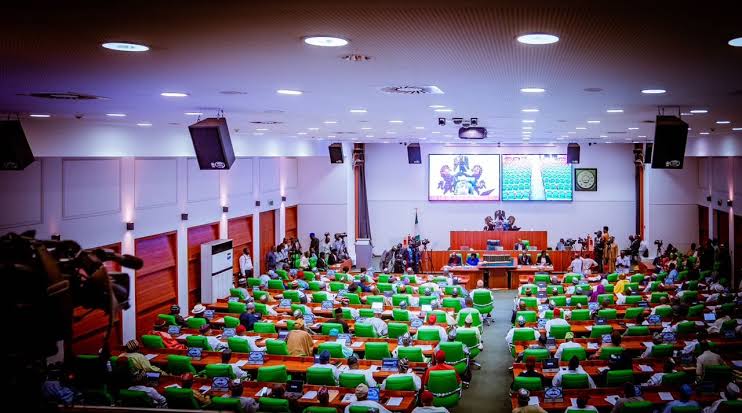/ News
Views: 592
Sterling Bank challenges House of Reps’ right to investigate customer accounts in court

Sterling Bank and its affiliates have gone to court to challenge the constitutional power of the Nigerian House of Representatives to investigate the management of funds in the accounts of two clients, Dr. Innocent Usoro and Miden Systems Limited. The Federal High Court in Lagos has scheduled a hearing for July 18, 2025, to address the lawsuit.
The plaintiffs, including Sterling Bank, Sterling Financial Holdings Company Plc, and senior executives Yemi Odubiyi, Abubakar Suleiman, Lekan Olakunle, and Dele Faseemo, are seeking to prevent the House of Representatives and its Committee Chairman on Public Petitions, Michael Etaba, from acting on a police report that suggests financial impropriety in the accounts of Usoro and Miden Systems Limited.
The bank and its affiliates argue that the National Assembly does not have the constitutional authority to probe private financial matters, particularly internal transactions between a bank and its customers. They also claim the case involves a 2021 consent judgment that cannot be revisited.
Femi Falana (SAN), representing the plaintiffs, argues that the House of Representatives has no right to investigate the internal workings of a private institution or summon the bank’s executives based on findings from the police report.
“The National Assembly has no constitutional power to investigate the internal affairs of a private institution,” Falana said in his statement.
On the other hand, the defendants — including Dr. Innocent Usoro, Miden Systems Limited, and the Inspector-General of Police — have strongly refuted the plaintiffs' claims. In a 40-paragraph counter-affidavit, Dr. Usoro accused the bank of forging documents related to a $30 million loan transaction and pointed to a January 2025 police report, which uncovered $122 million in questionable inflows into Miden Systems' accounts.
Usoro also claimed the court was misled into granting a Mareva injunction based on false information and called the bank’s actions into question.
“The plaintiffs have forged documents to fabricate a $30 million loan transaction and misled the court into granting an injunction,” Usoro said.
However, the plaintiffs firmly denied all allegations, defending the transactions as legitimate under a commercial loan agreement tied to a 2010 contract with Shell and executed by Miden Systems Limited.
“All our transactions were fully legal and in compliance with banking regulations,” they stated.
This case raises important questions about the extent of legislative powers in overseeing private financial matters. A ruling in favor of the plaintiffs could set significant limitations on the National Assembly’s ability to investigate private institutions, while a ruling in favor of the House would reinforce the legislature's broad oversight powers.
As the legal battle continues, the outcome will likely have long-term implications for the balance of power between Nigeria’s banking industry and its lawmakers.